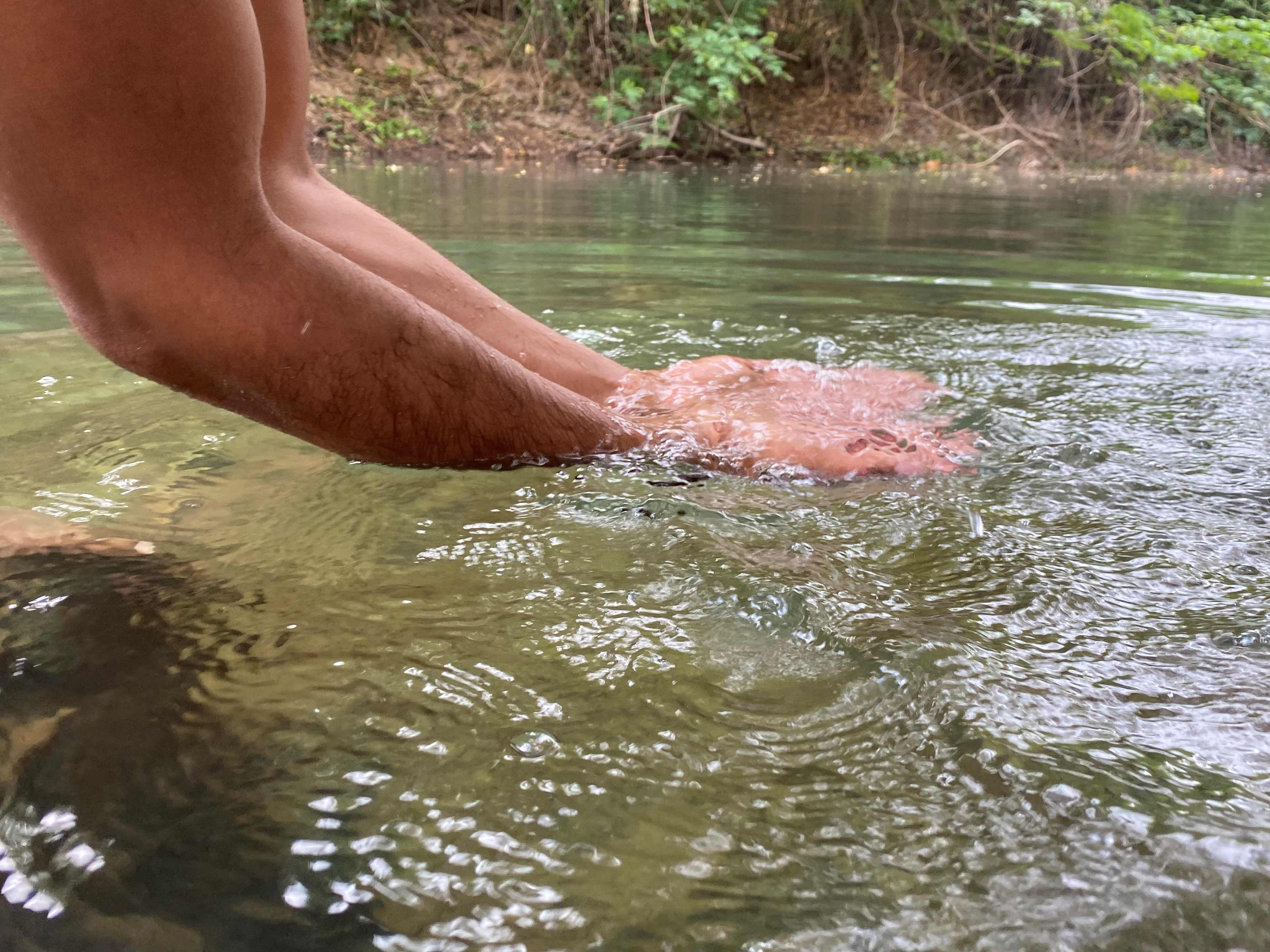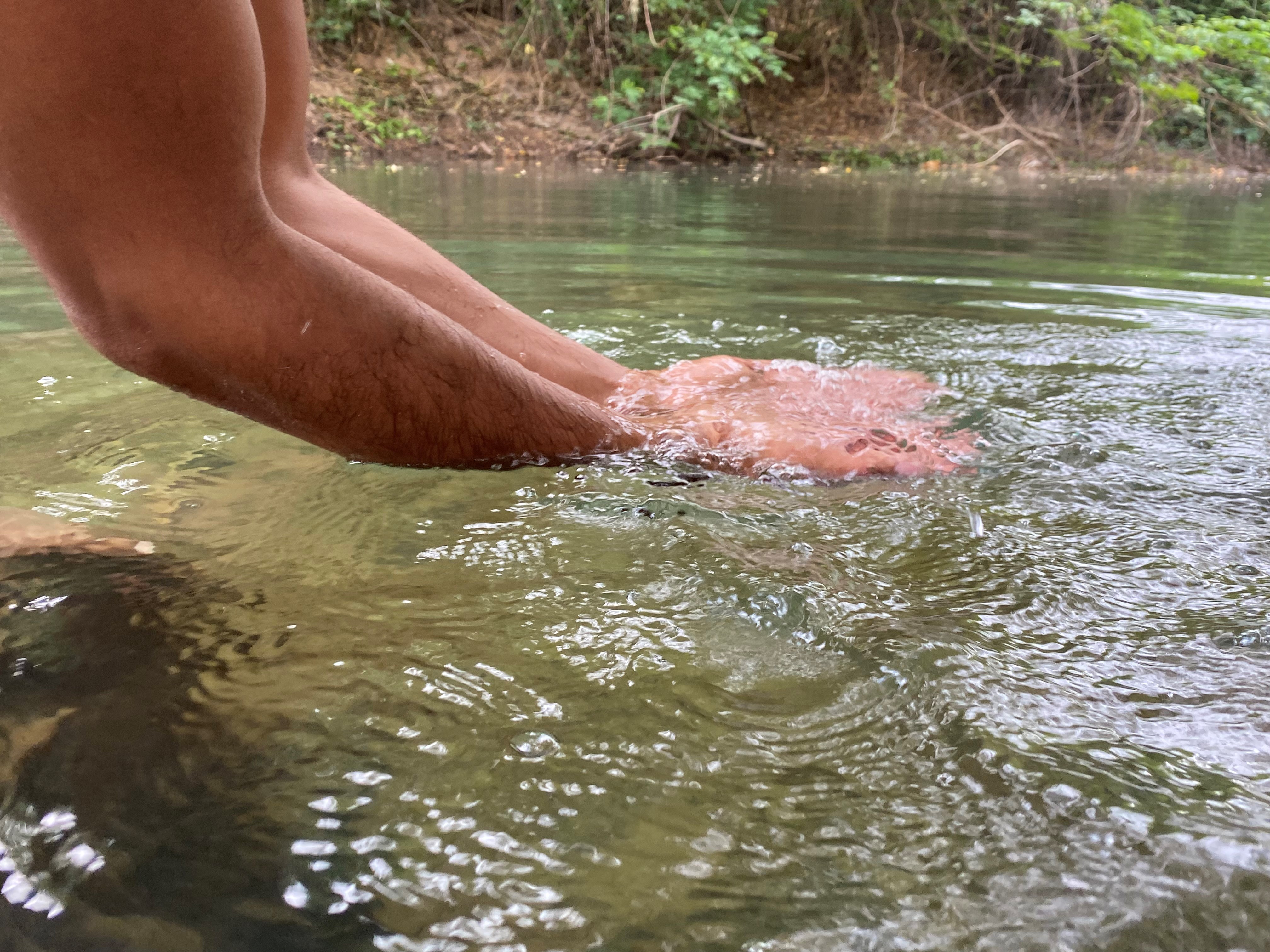
Bruno stream's new channel has flown permanently since 2022 and 2023
The new course of the Bruno stream flowed continuously throughout 2022 and in the first part of this year, 2023, despite already having gone through three dry seasons. The water flow during this time is an example of the success of the new channel, which has not ceased to feed its parent river, the Ranchería – the main waterway in the area of influence.
Through the collaborative efforts of experts and community members, a total of 69 hydrobiological monitoring campaigns and 24 campaigns dedicated to studying wildlife and flora have been conducted along the newly established path of the stream. These endeavors have provided evidence that not only is the quality and volume of water flow comparable to, but often surpasses that of a typical stream within the region. Furthermore, the remarkable Bruno stream serves as a habitat for over 390 distinct species of fauna and flora, showcasing its vital role in supporting biodiversity.
"The Bruno stream has been flowing continuously for over 18 months, despite being a seasonal stream. This permanent flow has strengthened the natural ecosystem and has turned it into a biodiversity corridor where multiple animal species such as jaguars, bocachicos, deer, and ocelots have found a secure home," says Luis Madriñán, Environmental Management Manager at Cerrejón.
As demonstrated by the monitoring stations of the Institute of Hydrology, Meteorology, and Environmental Studies (IDEAM), Cerrejón doesn't affect water availability. The water flow maintained by the Bruno stream is one of the factors that has contributed to a 39% average increase in the flow of the Ranchería River over the past seven years as it passes through Cerrejón's operations.
This increase is mainly achieved because Cerrejón does not use water from rivers or streams for its coal extraction activities (in 2022, 93% of the water used by the company came from runoff not suitable for human, animal, or agricultural consumption). Furthermore, within Cerrejón, there are conservation processes in place for the ecosystems of various streams such as Palomino, Paladines, Cerrejón, Tabaco, Aguasblancas, and the Bruno stream itself. This is a distinctive factor that ensures a constant contribution of these tributaries to the flow of the Ranchería River.
It's worth remembering that Cerrejón is one of the lowest consumers of water from the Ranchería River. Based on the water concession granted by Corpoguajira (the regional environmental authority) for various uses, 83% of the water is used for agriculture and livestock and 12% for services or domestic use, while Cerrejón uses only 1.3% of the water from the river.
Additionally, during 2022, together with the environmental authority and 37 families from the neighboring communities of Tigre Pozo and El Rocío, we managed to protect 259 hectares of forests located within the middle and upper basin of the Bruno stream. These restoration processes are framed within the conservation agreements signed in October 2019 with the communities, associations and families that live in the territory, who are contracted to carry out the restoration and implement sustainable agricultural practices, but at the same time improve their quality of life.
Through the development of initiatives like watershed conservation and protection, the company contributes to the fulfillment of UN Sustainable Development Goals 8: Decent Work and Economic Growth, 10: Reduced Inequalities, 13: Climate Action, and 15: Life on Land. These goals primarily aim to eliminate poverty, protect the planet, and ensure prosperity for all.
Note: The partial modification of the Bruno Creek riverbed has formed part of the Environmental Management Plan since 2005, and its detailed engineering was approved by the National Authority of Environmental Licenses (ANLA) in 2014. The work, which began in 2016 and finished in 2017 consisted in modifying 3.6 kilometres of the Bruno Creek riverbed, shifting it 700 metres north of its original location. The project, which is key to the company’s sustainability and for thousands of jobs in the region, was carried out following the highest technical and environmental standards and with the participation of the neighbouring communities, who were consulted as demanded by Colombian legislation.

The new course of the Bruno stream flowed continuously throughout 2022 and in the first part of this year, 2023, despite already having gone through three dry seasons.
Bruno stream's new channel has flown permanently since 2022 and 2023
